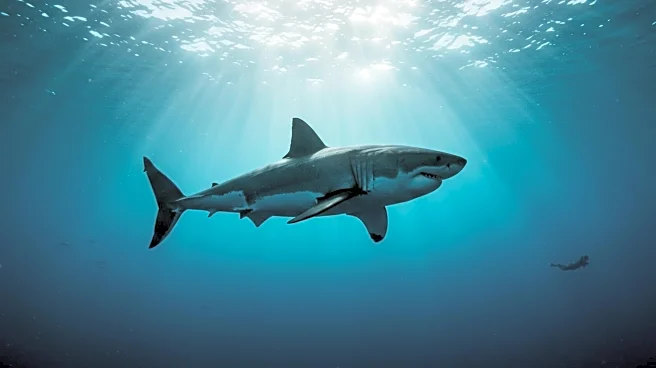What is the story about?
What's Happening?
Great white sharks are increasingly being spotted in northern waters, including off the coast of Maine and Nova Scotia. This shift is attributed to the thriving seal populations, which serve as a food source for the sharks. The Marine Mammal Protection Act has contributed to the conservation of seals, thereby attracting more sharks to these areas. The number of white sharks detected off Halifax, Nova Scotia, has increased significantly, and their average residency in northern waters has grown from 48 to 70 days. This trend is causing concern among beachgoers and fishermen, who are learning to coexist with these apex predators.
Why It's Important?
The movement of great white sharks further north has implications for local communities and ecosystems. While the presence of sharks can be alarming, it also indicates a healthy marine environment due to successful conservation efforts. However, it raises safety concerns for beachgoers and could impact local tourism and fishing industries. The increased sightings may necessitate new safety measures and public awareness campaigns to mitigate potential risks. Additionally, the shift in shark populations could affect marine biodiversity and the balance of local ecosystems.
What's Next?
As great white sharks continue to move north, researchers and local authorities may need to implement strategies to monitor and manage shark populations. This could include increased funding for marine research and conservation programs. Public education initiatives may be necessary to inform residents and tourists about shark safety and conservation. The Atlantic White Shark Conservancy and other organizations are likely to continue tracking shark movements and studying their impact on local ecosystems.
Beyond the Headlines
The presence of great white sharks in northern waters highlights broader environmental changes, including shifts in marine species distributions due to climate change and conservation efforts. This development underscores the importance of maintaining balanced ecosystems and the role of apex predators in marine environments. It also raises ethical considerations regarding human interactions with wildlife and the need for sustainable practices.
















